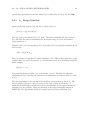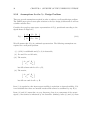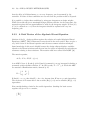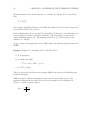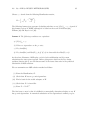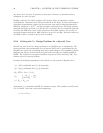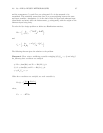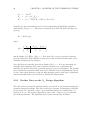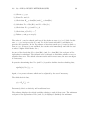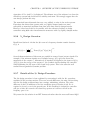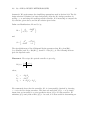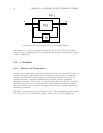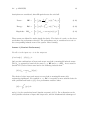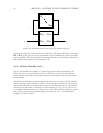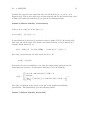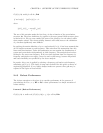2.3. H
∞
AND H
2
DESIGN METHODOLOGIES 39
a) Choose γ ≥ γ
opt
b) Form H
∞
and J
∞
c) Check that H
∞
∈ dom(Ric) and J
∞
∈ dom(Ric).
d) Calculate X
∞
= Ric(H
∞
)andY
∞
= Ric(J
∞
)
e) Check that X
∞
≥ 0andY
∞
≥0
f) Check that ρ(X
∞
Y
∞
) <γ
2
g) Reduce γ andgotostepb).
The value of γ can be reduced until one of the checks at steps c), e) or f) fails. In this
case, γ<γ
opt
and we use the X
∞
and Y
∞
of the lowest successful γ calculation to
generate the controller. In the Xµ software a bisection search over γ is used to find a γ
close to γ
opt
. If step a) is not satisfied, the routine exits immediately and tells the user
to select a higher initial choice for γ.
As part of the check that H
∞
∈ dom(Ric), (and J
∞
∈ dom(Ric)) the real part of the
eigenvalues is calculated. The software uses a tolerance to determine whether or not to
consider these zero. The default tolerance works well in most cases; the user can adjust
it if necessary.
In practice determining that X
∞
(and Y
∞
) is positive definite involves checking that,
min
i
Re{λ
i
(X
∞
)}≥−.
Again, is a preset tolerance which can be adjusted by the user if necessary.
The third check is that,
ρ(γ
−2
X
∞
Y
∞
) < 1.
Fortunately this is a relatively well conditioned test.
The software displays the critical variables relating to each of these tests. The minimum
real part of the eigenvalues of H
∞
(and J
∞
) is displayed. Similarly the minimum



